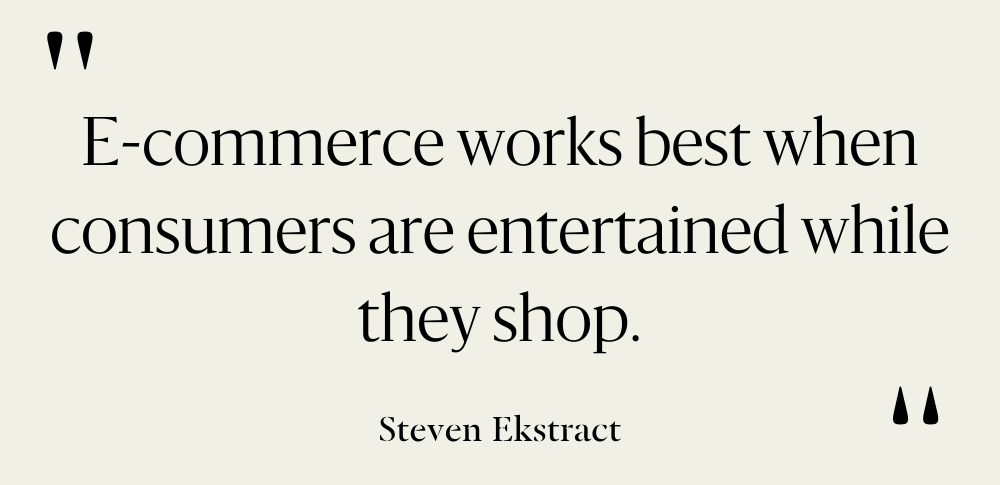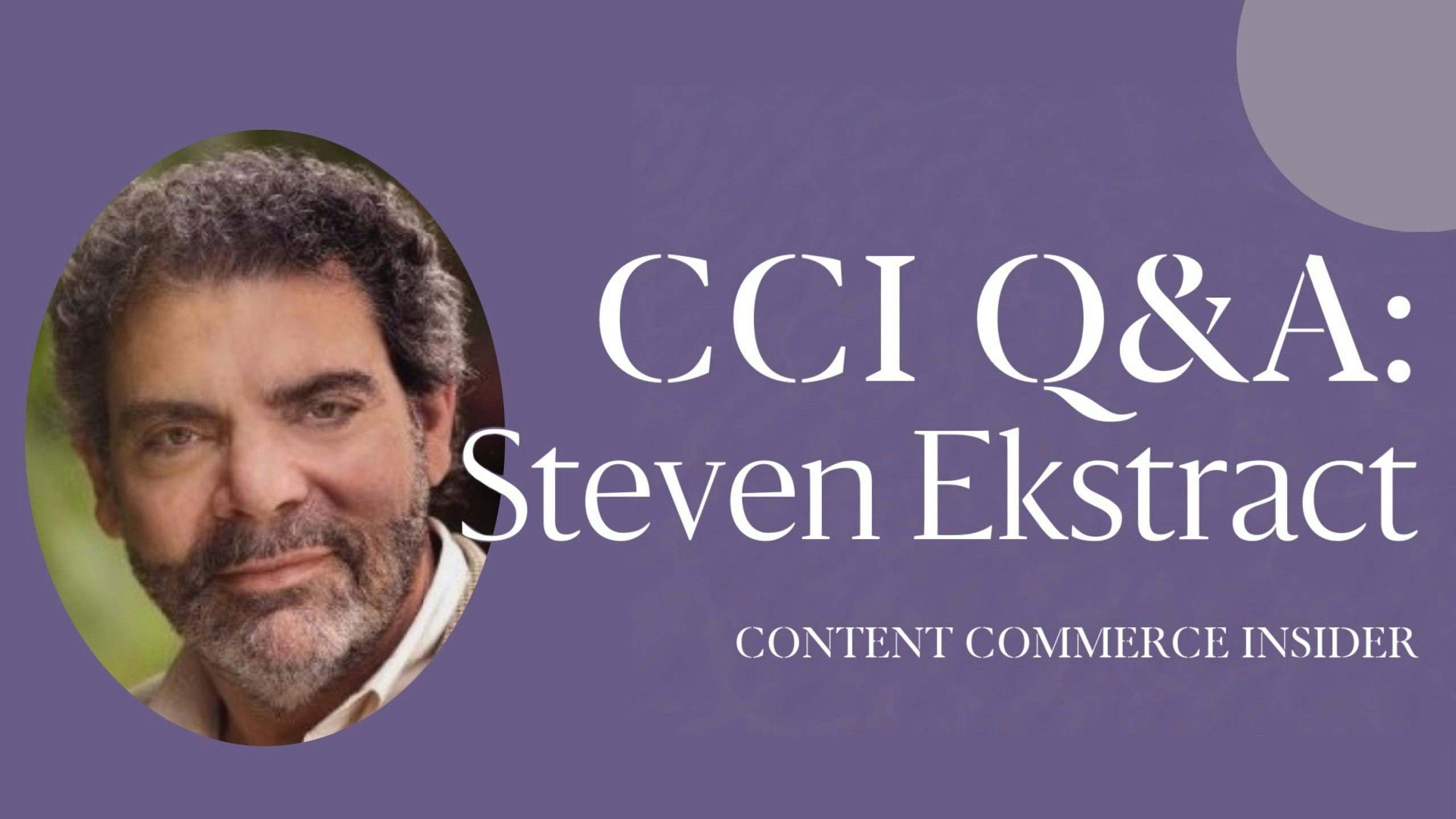This post originally appeared on Content Commerce Insider, our sister publication on branded entertainment.
As 2020 draws to a close, Content Commerce Insider has been catching up with leaders in their fields to share reflections on this transformative period as well as predictions for what comes next.#
In the first installment of our year-end Q&A series, we caught up with Steven Ekstract, Managing Director of Global Licensing Advisors, a consultancy that provides companies with insight and strategic direction to succeed in the $300 billion a year licensing business.
Ekstract was the founder and publisher of License Global magazine, the leading information source for the consumer licensing business, and has more than two decades of experience in the sector. For more insights from Ekstract, please check out
CollaBrands#
, his weekly series on licensing and collaborations, in our newly launched CCI Global Edition on Fridays.
CCI: How would you summarize the year in content-commerce?#
Steven Ekstract:#
The pandemic has accelerated the growth and acceptance of content commerce here in the United States at a much quicker pace than anticipated last year. Several critical factors include the acceleration of e-commerce and the accelerated demise of retail malls and department stores. The West discovered what China already knows, that e-commerce works best when consumers are entertained while they shop, so content has really driven commerce. Social media like
Instagram#
,
Snapchat#
,
TikTok#
,
Pinterest#
, and
Facebook#
have all accelerated their commerce through content. TikTok alone has been a cultural phenomenon that not even the government could stop. The commerce coming from TikTok is just a small drip compared to what will happen when the tap is turned on.
2020 also has seen the launch of behemoth SVOD providers like
Disney+, AppleTV+, Peacock,#
and
HBOMax#
, all of which have commerce as an end goal strategy. In the past month,
Netflix#
, the leading Western SVOD provider, has created a huge trend in chess playing with its airing of “The Queen’s Gambit.” This is a textbook example of how content drives commerce — a popular Netflix drama featuring an archaic board game created a chess craze.
CCI: What are some of the key marketing lessons that companies should take from the Covid-19 pandemic?#
Ekstract:#
Licensing is a powerful marketing tool that uses brand equity as content in order to drive commerce. Consumers enjoy brands that they trust. Brands that are fun and that entertain create greater emotional connections with consumers, who will buy more of those brands’ products as a result. Brands need to stand for something. Licensing into new product categories reinforces core brand equity, and provides the consumer with familiarity and trust at a time when they need it the most.
CCI: Content-commerce strategies like livestreaming e-commerce, brand collaborations, and brand-funded entertainment are becoming mainstream globally. For a brand just starting to look into content-commerce as an avenue to drive more revenue, how would you recommend they start?#
Ekstract:#
Start small with an analysis of your branding on social media. How are you building your community of fans? Is there a cohesive marketing strategy to build your visibility through your social media channels? This is hypercritical to the success of your commercial strategy. How are you using social media as a marketing tool to build your fan base? If you are licensing, are you including your licensed partners in your social media strategy? Social media is a great way to measure brand engagement among your most dedicated customers. Thus, your social media managers have a critical role in the brand’s value chain.
CCI: How has the world of licensing changed this year?#

Ekstract:#
The single largest category of licensed consumer products, Entertainment and Character, which represents 44% of licensed consumer product sales ($128.3 billion), saw significant disruption on the theatrical film side of the business. Hollywood franchises, which help sell licensed movie merch, completely shut down. The world’s largest licensor,
Disney#
, while seeing great success with its Disney+ premium streaming service, has seen significant revenue declines in licensed consumer products due to its strong dependence on brick and mortar retail and marketing plans that call for products being placed at retail weeks prior to film releases. Traditional sports merchandise has also seen a significant drop-off in sales, both for professional leagues and teams as well as collegiate. Major areas of growth in licensed products: video games and esports, food and beverage, home decor and home goods (kitchenware and appliances).
CCI: What companies do you find are doing the most effective job at leveraging brand licensing and why?#
Ekstract:#
Traditional brands that typically are conservative when it comes to licensing have seen the pandemic as a chance to try new, innovative ways to extend their brands through licensing, with an understanding that consumers are seeking comfort and familiarity in products as well as using brand licensing as a way to entertain and delight consumers. In this regard, many brands are using licensing to create out of the box products like the
Pizza Hut#
weighted blanket, the
Kentucky Fried Chicken#
Crocs shoes,
Dunkin Donuts#
-branded, coffee-flavored cereal, and the Travis Scott meal at
McDonald’s#
. They are showing us that commerce can also act as a form of entertainment. If consumers are not spending money going to movies, restaurants, sporting events, theaters, or amusement parks, they need other forms of leisure entertainment. Content with commerce brings them that.
CCI: What key trends are you closely watching in licensing for the year ahead?#
Ekstract:#
Given the continued need for consumers to stay home due to the pandemic, we will continue to see significant growth in food and beverage licensing, with familiar, trusted brands extending and collaborating into the grocery aisles as well as into quick-service restaurants. Further, brands that can tap into home-based products like home décor, DIY, home improvement, cooking and baking will continue to see strong growth. The beauty and cosmetics business was already experiencing significant growth pre-pandemic, but has really exploded as a result of consumers being at home and having more time to spend on beauty. Add to this the focus on Zoom and Facetime calls with people hyper-aware of their appearance on-screen, and we are seeing huge numbers in licensed beauty collabs. How many celebrities now have beauty brands? Those are all licensed. Brands that tap into nostalgia will see significant licensing growth. Consumer packaged goods brands will become more creative and daring in their licensed collaborations. For example, just announced was the Lady Gaga
Oreo#
cookies.
